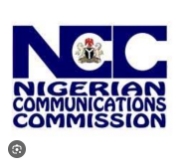
NCC presents outcome of Regulatory Impact Assessment on Subsidiary Legislation 2024
By Bose Adelaja
CITIZENS COMPASS—The Nigerian Communications Commission (NCC) on Thursday, hosted a hybrid (in-person and virtual) Stakeholder Engagement Forum on its seminal Regulatory Impact Assessment (RIA) exercise.
RIA was conducted on eight subsidiary legislations by the Commission in 2024 as an innovation to its rulemaking process and another avenue for participatory regulatory engagement of all stakeholders.
Speaking at the event, Dr. Aminu Maida, Executive Vice Chairman/CEO of the Commission, said the exercise took into consideration the three Strategic Focus Areas of the Commission namely; the consumers, the impact of Subsidiary Legislations on licensees and the market and government.
According to him, “The process of this Regulatory Impact Assessment took into consideration the three Strategic Focus Areas of the Commission.
First, the Consumers. It goes without mention that the Commission places consumers at the centre of its regulation of the telecommunications industry. They are key to the issuance and implementation of our Subsidiary Legislations. It is therefore critical to the RIA process to review the impact of these legislations that border on consumer satisfaction and Quality of Experience (QoE).
“Secondly, the RIA aims to evaluate the impact of Subsidiary Legislations on licensees and the market—these are the second strategic focus area of the Commission. This evaluation is important in determining the adaptability and agility of these legislations in reducing barriers to market entrance, entrenching fair competition in the market and facilitating effective and efficient utilisation of scarce resources.
“The final strategic focus area that relates to the RIA is the Government—the overarching stakeholder and major driver of policies and national objectives. The RIA reviewed the impact and opportunities of these legislations on driving governmental objectives and meeting policy expectations.
The essence of the Regulatory Impact Assessment (RIA) is to provide the telecommunications ecosystem with opportunities to participate in evaluating regulations which when drafted we safeguard the public interest, stimulate innovations and facilitate investment in the Market.
The RIA process provided major stakeholders with an opportunity to offer feedback, as well as recommend areas for review and improvement that will enhance legislation.
“The Commission remains committed to fostering a fair, transparent, and consumer-centric telecommunications landscape. “Today’s discussions—on the report of the RIA, its outcomes and recommendations—are critical to refining our policies and ensuring that our regulatory approach aligns with the dynamic nature of the industry as well as shape regulatory practices for years to come.
“This engagement provides us an opportunity to look at the recalibration of the Commission’s strategic focus areas and determine whether the expectations of our major stakeholders are being met.
“Let us therefore, scrutinise rigorously, listen to diverse viewpoints respectfully and stay focused on the ultimate objective, which is to develop and build a regulatory framework that promotes growth and ensures market sustainability. I encourage open and constructive engagement, as your insights will be invaluable in shaping the rule-making process and deepening the development, review and implementation of subsidiary legislations.
“Your presence and participation here today is highly appreciated. I look forward to productive discussions, diverse viewpoints and meaningful outcomes that will strengthen market rules, cement consumer trust, provide regulatory clarity and enhance the agility and adaptability of subsidiary legislation.
On behalf of the Nigerian Communications Commission, I thank you for your participation.”
Earlier in her welcome address, Mrs. Chizua Whyte, Head, Legal and Regulatory Services Department, NCC, said of the exercise, “The assessment focused on critical areas such as licensing, SIM registration, subscriber management, spectrum trading, enforcement procedures, and infrastructure sharing.
Through this review, we have identified opportunities to streamline processes, clarify obligations and remove outdated provisions that may hinder innovation or investment.
What distinguishes this RIA is the depth of collaboration it entails. We drew insights not only from internal analysis but also from the invaluable feedback of industry stakeholders. Their practical perspectives and constructive contributions helped shape the recommendations that we present today.
“As Head of Legal and Regulatory Services, I am proud of the role our department has played in championing this initiative. The successful completion of this RIA demonstrates our unwavering dedication to building a regulatory environment that supports innovation, fairness, and transparency. As we transition into the next phase, the outcomes of this assessment will guide the Commission’s regulatory review and reform agenda. They will form the basis for amending and updating relevant subsidiary legislation to better align with current realities and future aspirations.”






